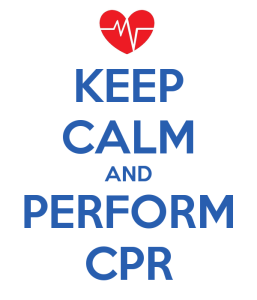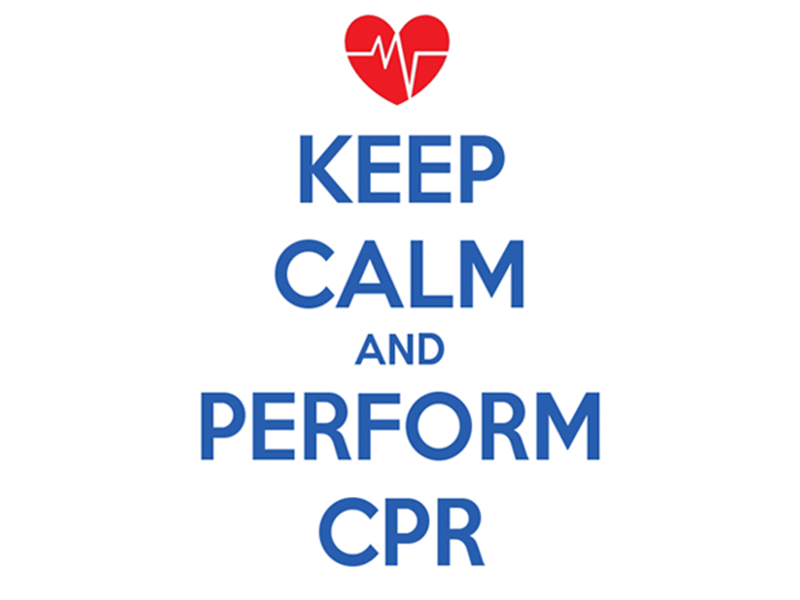Calm:

In case of emergency, the most important thing you can do is to stay calm. Staying calm allows you to rationally assess the situation and to best provide aid to people in need. Here are some great tips for how to best maintain your cool in the face of extreme circumstances.
Before the crisis:
Practice staying calm and what you would do:
Have a friend or family member act out different emergency scenarios. The more routine your response is, the easier it will be to remember when you are under stress.
Get adequate training:
Taking a course in CPR/First Aid is a great start. Make sure your CPR skills stay fresh in your mind so you can call on them with no difficulty when needed. It’s also important to renew your certification every two years to help you remember better and also to learn any new techniques.
During the crisis
Breathe:
Possibly the most important thing you can do is control your own fight-or-flight response. Taking a few seconds to take some deep breaths and calm yourself is essential. The best method of breathing to help calm your nerves is to inhale deeply through your nose, hold for a count of three, and exhale slowly through pursed lips. Staying calm and being able to think rationally will help you be the most effective in an emergency situation.
Focus:
Now that you’ve taken the time to calm your body, it’s time to focus on the details. What needs to happen? What action do you need to take to best provide help? While you are calm, assess the situation and determine an action plan.
Assess the safety of the situation:
Take a look around at your surroundings before running to help. Are there any down power lines? Is there fire? Make sure before you attempt to give aid that you are not putting yourself in a dangerous situation. Of course you should never attempt to move anyone you suspect has a back or neck injury unless they are in imminent danger.
Call for help:
Either call yourself before you start to give aid, or designate someone in the crowd to call for help. Remember that a healthy person will get tired after about 2 minutes of performing CPR, so make sure that help has been called for before you start.
Follow your training:
If your training is like second nature, it will be easier to remember what to do in an emergency situation. The American Heart Association warns that retention of CPR skills is a major issue and unused CPR skills may start deteriorating within six months. It is essential to stay updated on CPR technique to retain your training and be able to provide aid for a person in distress. We have designed our newsletter to help keep CPR techniques and information fresh in your mind with quarterly exposure to these concepts.
Benjamin Franklin said, “By failing to prepare, you are preparing to fail.” His advice is sound and a good reminder to stay updated on your CPR certification.

